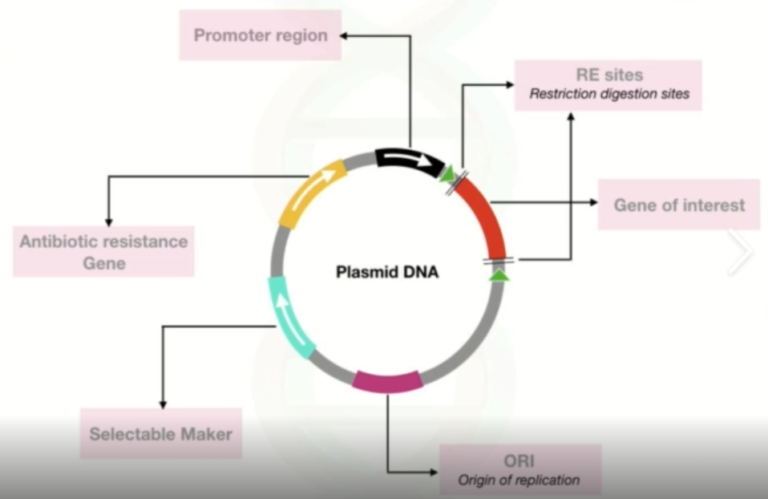Summary: Mouse study exposes periodic fasting improves long-term memory retention and promotes hippocampal neurogenesis. The findings could help to slow cognitive decrease in older adults.Source: King’s
College London
A new study from the Institute of Psychiatry, Psychology and Neuroscience (IoPPN) at King’s College London has actually developed that Intermittent Fasting (IF) is an efficient means of improving long term memory retention and creating brand-new adult hippocampal neurons in mice, in what the researchers hope has the possible to slow the advance of cognitive decrease in older people.The research study, released today
in Molecular Biology, found that a calorie limited diet plan through every other day fasting was an efficient methods of promoting Klotho gene expression in mice. Klotho, which is often described as the”longevity gene”has actually now been displayed in this research study to play a main function in the production of hippocampal adult-born new nerve cells or neurogenesis.Adult-born hippocampal nerve cells are important for memory formation and their production decreases with age, discussing in part cognitive decrease in older people.The scientists divided female mice into three groups; a control group that received a basic diet of everyday feeding, an everyday Calorie Restricted (CR)diet, and Intermittent Fasting(IF)in which the mice were fed every other day. The latter 2 groups were fed 10%less calories than the control.Over the course of three months, the mice in the IF group demonstrated enhanced long-lasting memory retention compared to the other groups. When the brains of these mice were studied, it appeared that the Klotho gene was upregulated, and neurogenesis increased compared to those that were on the CR diet.”We now have a considerably greater understanding as to the reasons that intermittent fasting is an effective methods of increasing adult
neurogenesis. Our outcomes demonstrate that Klotho is not only required, however plays a central role in adult neurogenesis, and recommends that IF is an effective methods of enhancing long-term memory retention in people.”Said Dr Sandrine Thuret, of King’s IoPPN.Dr Thuret’s previous work has demonstrated that calorie restricted diet plans in human beings can improve memory function. That research study revealed that IF can improve finding out
procedures and could affect age associated cognitive impairment.Dr Gisele Pereira Dias from King’s IoPPN said “In showing that IF is a more effective means of improving long term memory than other calorie-controlled diet plans, we’ve offered ourselves an outstanding
means of going forwards. To see such significant enhancements by decreasing the overall calorie consumption by just 10%shows that there is a great deal of guarantee. “The researchers now wish to recreate this research study with human individuals in order to even more check out the effects of IF.Funding: This study was made possible thanks to funding from the Medical Research Council( UK), the Psychiatry Research Trust,
and the AHA-Allen Initiative in Brain Health and Cognitive Impairment. About this memory research news Source: King’s College London
Contact: Sandrine Thuret– King’s College London Image: The image remains in the general public domain Original Research: Open gain access to.”Intermittent fasting improves long-lasting memory combination, adult hippocampal neurogenesis, and
expression of longevity gene Klotho”by Gisele Pereira Dias, Tytus Murphy, Doris Stangl, Selda Ahmet, Benjamin Morisse, Alina Nix, Lindsey J. Aimone, James B. Aimone , Makoto Kuro-O, Fred H. Gage, Sandrine Thuret. Molecular Biology Intermittent fasting boosts long-term memory consolidation, adult hippocampal neurogenesis, and expression of longevitygene Klotho Daily calorie constraint (CR)and
periodic fasting(IF)improve longevity and cognition but the impacts and mechanisms that distinguish these two paradigms are unknown.We examined whether IF in the type of every-other-day feeding enhances cognition and adult hippocampal neurogenesis (AHN)when compared to a matched 10%everyday CR intake and ad libitum conditions.After 3 months under IF, female C57BL6 mice showed enhanced long-lasting memory retention. And microarray analysis exposed that the durability gene Klotho if increased the number of BrdU-labeled cells and neuroblasts in the hippocampus( Kl)was upregulated in the hippocampus by IF only.Furthermore, we found that downregulating Kl in human hippocampal progenitor cells led to reduced neurogenesis, whereas Kl overexpression increased neurogenesis. Finally, histological analysis of Kl knockout mice brains revealed that Kl is required for AHN, especially in the dorsal hippocampus.These information suggest that IF is superior to 10%CR in improving memory and recognizes Kl as a novel candidate molecule that regulates the results of IF on cognition most likely by means of AHN improvement.
Join our Newsletter I accept have my personal details transferred to AWeber for Neuroscience Newsletter( more info) Sign up to receive our recent neuroscience headlines and summaries sent out to your e-mail once a day, totally free.
We dislike spam and just use your email to call you about newsletters. You can cancel your subscription any time.This material was initially released here.
, found that a calorie limited diet through every other day fasting was an effective ways of promoting Klotho gene expression in mice. Klotho, which is often referred to as the”longevity gene”has now been shown in this study to play a central role in the production of hippocampal adult-born brand-new neurons or neurogenesis.Adult-born hippocampal nerve cells are essential for memory formation and their production declines with age, discussing in part cognitive decrease in older people.The researchers divided female mice into three groups; a control group that received a standard diet plan of day-to-day feeding, an everyday Calorie Restricted (CR)diet, and Intermittent Fasting(IF)in which the mice were fed every other day. The latter two groups were fed 10%less calories than the control.Over the course of 3 months, the mice in the IF group showed enhanced long-lasting memory retention compared to the other groups. When the brains of these mice were studied, it was obvious that the Klotho gene was upregulated, and neurogenesis increased compared to those that were on the CR diet plan. Said Dr Sandrine Thuret, of King’s IoPPN.Dr Thuret’s previous work has actually demonstrated that calorie restricted diets in humans can enhance memory function.
, found that a calorie limited diet through every other day fasting was an effective ways of promoting Klotho gene expression in mice. Klotho, which is often referred to as the”longevity gene”has now been shown in this study to play a central role in the production of hippocampal adult-born brand-new neurons or neurogenesis.Adult-born hippocampal nerve cells are essential for memory formation and their production declines with age, discussing in part cognitive decrease in older people.The researchers divided female mice into three groups; a control group that received a standard diet plan of day-to-day feeding, an everyday Calorie Restricted (CR)diet, and Intermittent Fasting(IF)in which the mice were fed every other day. The latter two groups were fed 10%less calories than the control.Over the course of 3 months, the mice in the IF group showed enhanced long-lasting memory retention compared to the other groups. When the brains of these mice were studied, it was obvious that the Klotho gene was upregulated, and neurogenesis increased compared to those that were on the CR diet plan. Said Dr Sandrine Thuret, of King’s IoPPN.Dr Thuret’s previous work has actually demonstrated that calorie restricted diets in humans can enhance memory function.




















